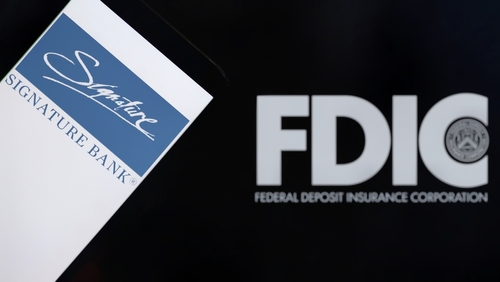The Federal Deposit Insurance Corporation (FDIC) released the results of an internal review of New York-based Signature Bank, which failed in March.

The review, conducted by chief risk officer Marshall Gentry, identifies the numerous causes of Signature Bank’s failure and assesses the FDIC’s supervision of the bank.
“The root cause of [Signature Bank’s] failure was poor management. [Signature Bank’s] board of directors and management pursued rapid, unrestrained growth without developing and maintaining adequate risk management practices and controls appropriate for the size, complexity, and risk profile of the institution. [Signature Bank’s] management did not prioritize good corporate governance practices, did not always heed FDIC examiner concerns, and was not always responsive or timely in addressing FDIC supervisory recommendations (SRs). [Signature Bank] funded its rapid growth through an overreliance on uninsured deposits without implementing fundamental liquidity risk management practices and controls,” the report said.
Signature Bank was closed by the New York Department of Financial Services on March 12, and the FDIC was appointed as receiver. The FDIC established and operated Signature Bridge Bank, N.A., until March 19, when it entered into a purchase and assumption agreement with Flagstar Bank, a subsidiary of New York Community Bancorp, Inc.
The report also discussed the FDIC’s supervision of Signature Bank.
“The FDIC conducted a number of targeted reviews and ongoing monitoring, issued Supervisory Letters and annual roll–up reports of examination (ROEs), and made a number of SRs to address supervisory concerns. In retrospect, FDIC could have escalated supervisory actions sooner, consistent with the Division of Risk Management Supervision’s (RMS) forward–looking supervision concept. Additionally, examination work products could have been timelier, and communication with [Signature Bank’s] board and management could have been more effective.” The report also finds that: “The FDIC experienced resource challenges with examination staff that affected the timeliness and quality of [Signature Bank] examinations,” the report said.
Overall, the report said that Signature Bank could have been more measured in its growth, implemented appropriate risk management practices, and been more responsive to the FDIC’s supervisory concerns. Further, it added that the FDIC could have been more forward–looking and forceful in its supervision of the bank.